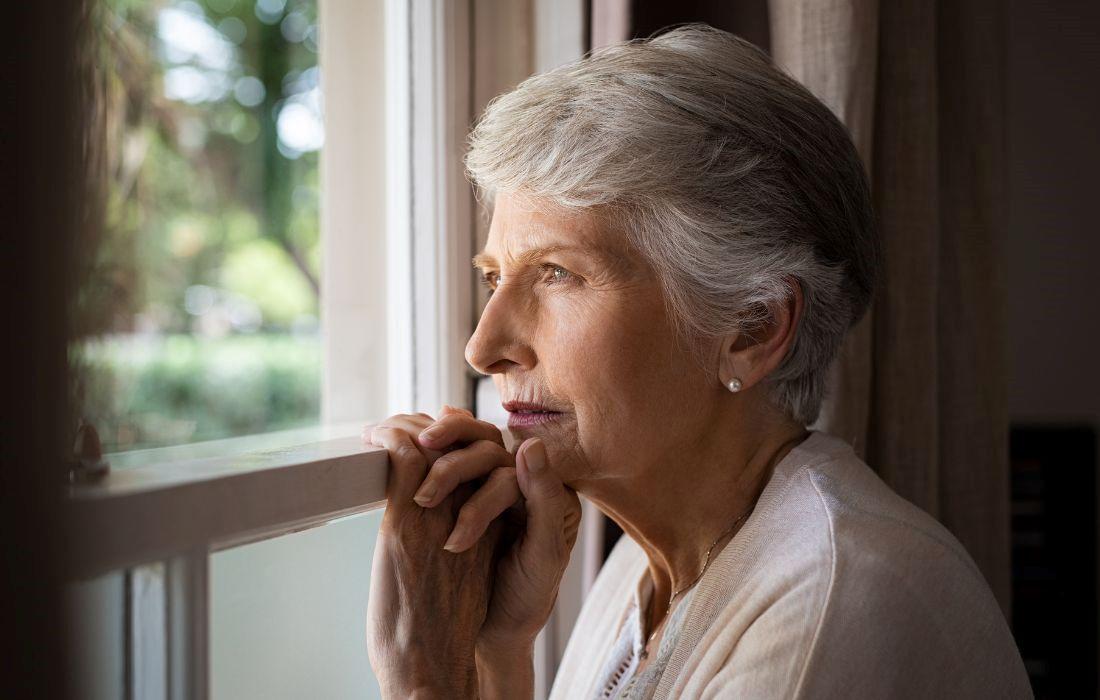Our mental health significantly impacts our well-being. As we age, we can face mental health challenges, and so can our loved ones. To commemorate Mental Health Awareness Month, this blog will dive into the challenges of maintaining our mental health as we age.
What are the risk factors that contribute to mental health challenges in aging adults?
Just like any other population, aging adults are more likely to experience mental health challenges if they have experienced significant trauma, have become socially isolated, are experiencing financial insecurity, or have experienced significant life transitions or losses.
Some common triggers for declining mental health for aging adults include:
- Cognitive decline
- Chronic or worsening health conditions
- Loneliness
- Negative stereotypes or discrimination against aging adults
- Loss of independence or feeling like life as they knew it is over
- Personality traits like perfectionism and independence can make it difficult for aging adults to rely on others for primary care

What signs and symptoms signify mental health problems in older adults?
Elderly individuals commonly face health challenges such as depression, anxiety, memory loss, and cognitive impairment, as well as feelings of sadness and social disconnection. These emotional struggles can be intensified by deteriorating health conditions, feelings of isolation, and reluctance within the population to seek assistance for mental well-being.
Read: Best Video Call Devices for Seniors
How can we differentiate between regular aging-related changes and symptoms of mental health challenges?
Typical age-related changes happen gradually over time and tend to be mild without interfering with an individual’s daily functioning. Mental health disorders present themselves as severe and persistent and significantly impact the ability to carry out typical daily tasks.
Mental health concerns are often less responsive to lifestyle changes than aging-related symptoms. For example, age-related changes can be improved or resolved through lifestyle modifications or minor interventions such as diet changes or joining a support group. However, mental health conditions usually persist despite using coping strategies.
What strategies can we use to decrease loneliness and social isolation in aging adults?
- Keeping in touch with loved ones (via phone calls, meetups, letters or emails, etc.)
- Engaging in groups (family gatherings, church events, club activities, etc.)
- Exploring new hobbies and pastimes (such as reading, gardening, knitting, etc.)
- Contributing time to volunteer for important causes
- Seeking companionship from friends, neighbors, family members, pets, etc.
Read: Therapeutic Power of Gardening for Seniors
How do we address the stigma surrounding mental health challenges within the aging population?
It can be difficult for older adults to acknowledge or get help for mental health issues. Speaking positively about mental health challenges and treatment can help reduce the stigma around seeking support for mental health services. Aim to let your loved ones know that it’s normal for adults to face health challenges, so they’re not alone, and experts and support are available.

When is it appropriate to seek assistance or support for mental health concerns in older individuals, and what treatment options are available?
When the well-being of individuals is affected by mental health issues, such as losing interest in hobbies they used to love, distancing themselves from social connections, and facing difficulties in their daily routines, seeking assistance from a professional becomes crucial—signs of health problems escalating or becoming serious signal the necessity for intervention.
The available treatment options differ based on the nature and severity of the symptoms and additional health considerations; however, reaching out to a primary care physician with your worries is a significant first step.
Recognizing the signs and symptoms of mental health challenges is so important as a family member or caregiver of an older adult. As we’ve discussed, aging adults are less likely to seek help for their mental health challenges, so it is essential to have resources available if and when these signs present themselves. It is equally as necessary to maintain your mental well-being as a caregiver by practicing self-care, taking breaks, and seeking help for mental health concerns as you care for your loved one.
Receive The Latest News









